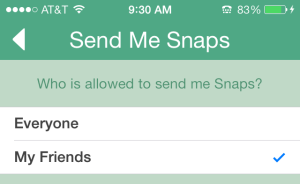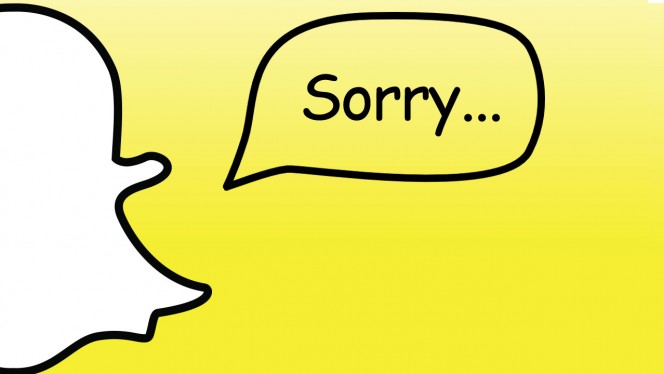Snapchat delayed apologizing for a big user data breach last month but was quick to say sorry today to users who received “Snap Spam” over the weekend — unwanted photos and videos.
“We’ve heard some complaints over the weekend about an increase in Snap Spam on our service. We want to apologize for any unwanted Snaps and let you know our team is working on resolving the issue,” Snapchat wrote in a blog post today. However, it said the issue appeared to be unrelated to the user data breach.
That last part addresses worries that, because 4.6 million usernames and associated partial-phone numbers leaked, spammers could be attempting to send spam Snaps to every username they can find. Many people only allow Snaps from friends, but others accept them from anyone with their user name, opting for privacy by obscurity.
CEO Evan Spiegel personally denied the connection in a tweet:
https://twitter.com/evanspiegel/status/422427439667486720
To keep people safe, Snapchat recommends going into the app’s “Who can send me snaps” setting and only allow Snaps from friends you approve.
 Snap spam could derail the growth of Snapchat if it goes unchecked. There’s something really exciting about receiving a legitimate Snap, and knowing you have to pay attention when watching because you only get to see it once (or twice thanks to the new Replay feature). But Snap spam erodes this anticipation, and could make users weary of notifications that they’ve received a new ephemeral message.
Snap spam could derail the growth of Snapchat if it goes unchecked. There’s something really exciting about receiving a legitimate Snap, and knowing you have to pay attention when watching because you only get to see it once (or twice thanks to the new Replay feature). But Snap spam erodes this anticipation, and could make users weary of notifications that they’ve received a new ephemeral message.
Snapchat has been aware of the threat for months, as it published a blog post in April called “Snap Spam (Ew.)”. At the time, it said it was working on long-term solutions, but also recommended not accepting Snaps from strangers.
One problem with fighting the spam surge is that there’s no way to currently report spam. You can only block it. That makes it harder for Snapchat to tell whether someone was blocked for sending amateur unwanted Snaps, or for sending serious spam and should have their account shut down.
A rise in Snap spam may be an inevitable growing pain of a social network increasingly becoming a household name. It may have finally passed the threshold of becoming interesting to spammers. Instagram began to endure a similar issue with spam photos and comments, but was in part saved by its acquisition by Facebook. The parent company threw its veteran anti-spam team against the problem and Insta-spam has curtailed.
At the very least, critics may be silenced by Snapchat’s sudden willingness to apologize. Perhaps the flurry of punches from the press finally got to CEO Evan Spiegel. Most people agree that apologizing isn’t a sign of weakness but of respect for users.
[Image: Softonic]
